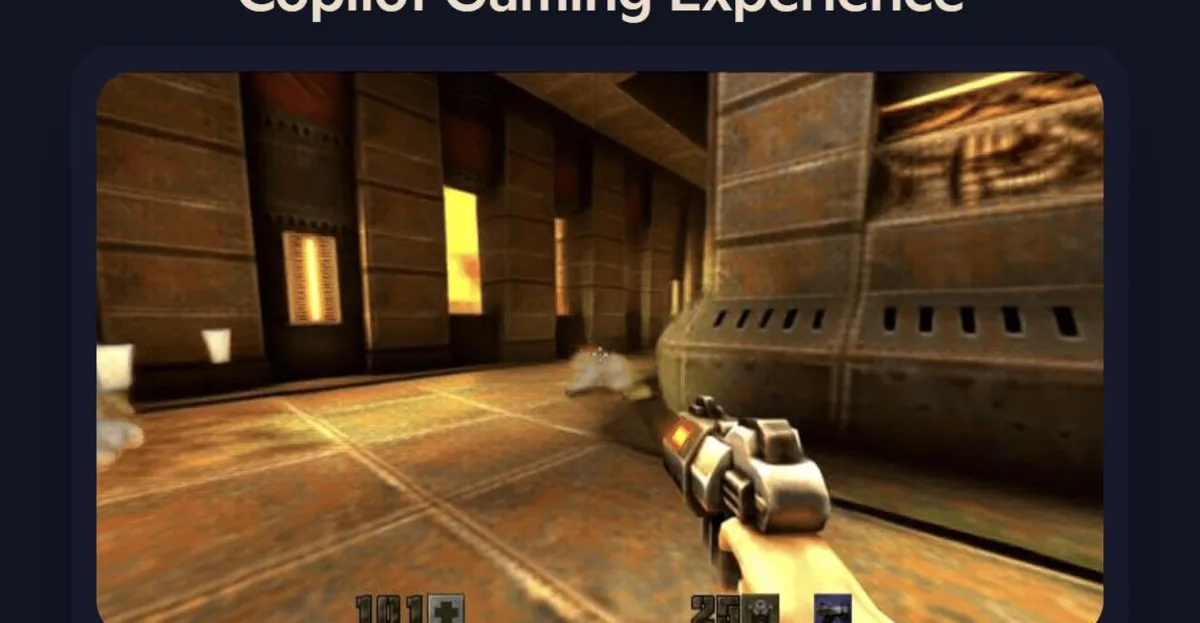
Earlier this year, Microsoft made headlines by unveiling its groundbreaking Xbox AI era, introducing a new AI model known as Muse that has the potential to revolutionize how games are developed and played. Initially perceived as an early project from Microsoft Research, the Muse AI model is now more accessible, allowing users of Copilot to experience its capabilities firsthand through an AI-generated version of the iconic game, Quake II.
This innovative tech demo is a significant part of Microsoft’s Copilot for Gaming initiative. It features an AI-generated replica of Quake II that can be played directly in a web browser. However, it’s worth noting that the gameplay experience is quite basic, showcasing blurry enemies and limited interactions. Additionally, Microsoft has imposed restrictions on the duration of gameplay, ensuring users have a brief yet intriguing encounter with this early-stage technology.
During its initial demonstration, Muse AI was showcased at a modest 10 frames per second (fps) and a resolution of 300 x 180. In contrast, the latest demo runs at a more playable frame rate and offers a slightly enhanced resolution of 640 x 360. Despite these improvements, the experience remains limited, serving primarily as a glimpse into the exciting possibilities that AI technology holds for the gaming industry.
Microsoft continues to position Muse as a vital tool for game developers, particularly in the prototyping phase of game creation. When Muse was first introduced in February, the company highlighted its potential to enhance classic games, such as Quake II, by adapting them for modern hardware. Phil Spencer, the CEO of Microsoft Gaming, stated, “You could imagine a world where from gameplay data and video, a model could learn old games and make them portable to any platform where these models could run.”
Spencer also emphasized the importance of game preservation, noting that these AI models could learn game mechanics without the original engine or hardware, thereby unlocking numerous opportunities for the gaming community. This approach suggests that Microsoft is expanding the scope of Muse beyond just the game Bleeding Edge, hinting that more interactive AI-driven gaming experiences will emerge in Copilot Labs soon.
In addition to enhanced gameplay experiences, Microsoft is working on evolving Copilot into a personal coach for gamers. This AI assistant is designed to observe what you’re playing and provide tailored tips and guides to improve your gaming skills. A portion of this innovative experience is expected to be available to Windows Insiders through Copilot Vision shortly, further enriching the gaming experience for users.
As Microsoft continues to explore the possibilities of AI in gaming, the future looks promising for both developers and players alike. With initiatives like Muse and Copilot, we can expect a new era of gaming that blends cutting-edge technology with classic gameplay.